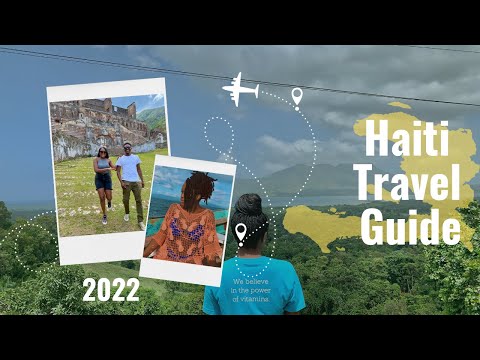
Haiti, a country rich with cultural history and stunning natural beauty, offers travelers an authentic and adventurous experience. Situated on the western side of the island of Hispaniola, which it shares with the Dominican Republic, Haiti is a destination that enchants with its vibrant music, art scenes, and historical ruins. However, traveling to Haiti does come with its challenges, including political instability and infrastructure issues. Below is an essential guide covering all you need to know before embarking on a journey to this unique Caribbean country.
## Before You Go
### Travel Documents
Travelers to Haiti will need a passport valid for six months beyond their date of entry. Visitors from many countries can stay visa-free for up to 90 days. Always check your country’s specific requirements before planning your trip.
### Vaccinations and Health Precautions
Before traveling to Haiti, ensure that you are up-to-date on routine vaccinations. Additionally, vaccines for Hepatitis A and Typhoid are recommended due to the risks posed by contaminated food or water. Malaria prophylaxis may also be advised depending on the areas you plan to visit.
### Safety Concerns
Haiti often faces political unrest and has significant crime rates in urban areas like Port-au-Prince. It’s wise to stay updated on travel advisories from your government. Avoid demonstrations or large gatherings as these can turn violent unexpectedly.
### Currency
The Haitian Gourde (HTG) is the official currency. US dollars are widely accepted in most tourist areas; however, having local currency can be handy for smaller purchases in less touristy spots or rural areas. Credit card usage is limited so carrying cash or using mobile payment where possible is advisable.
### Language
French and Haitian Creole are the official languages of Haiti. Basic French can be very useful as not everyone speaks English, especially outside major cities.
## Getting There & Around
### Air Travel
Toussaint Louverture International Airport in Port-au-Prince is the main gateway into Haiti. Direct flights are available from several major cities in the United States and other parts of the Caribbean.
### Transportation Within Haiti
Public transportation consists mainly of “tap-taps” (converted pick-up trucks used as shared taxis) which are affordable but often crowded. Renting a car might offer more comfort and flexibility but be prepared for challenging road conditions outside main urban areas. Hiring a local driver who knows the terrain well could also be a safer option.
## What To See & Do
### Historical Sites
– **The Citadelle Laferrière**: A massive stone fortress located atop a mountain near Cap-Haïtien; it offers panoramic views along with a glimpse into Haitian history.
– **Sans-Souci Palace**: Located at the foot of Citadelle Laferrière; once was a royal residence of King Henri Christophe.
– **Musée du Panthéon National Haïtien (MUPANAH)**: In Port-au-Prince, this museum houses artifacts from Haiti’s pre-Columbian through colonial eras up until modern times.
### Natural Beauty
– **Labadee**: A private resort leased by Royal Caribbean Cruises boasts beautiful beaches and coral reefs.
– **Bassin Bleu**: A secluded area near Jacmel featuring natural water pools beneath cascading waterfalls – ideal for swimming.
### Cultural Experiences
– **Carnival**: If visiting during February/March, experience one of Haiti’s vibrant carnival celebrations featuring music, dance, and elaborate costumes.
– **Art Galleries**: Visit galleries in Port-au-Prince showcasing brilliant Haitian art known for its vivid colors and intricate designs.
## Food & Drink
Haitian cuisine reflects blends of French, African, Spanish influences:
– **Griot**: Fried pork dish served often during festive occasions.
– **Soup Joumou**: Traditional pumpkin soup known as independence soup because it was historically consumed by revolutionaries.
Always drink bottled or purified water to avoid health issues related to untreated water sources.
## Accommodation
From boutique hotels in urban centers like Pétion-Ville to beach resorts at Côte des Arcadins – options vary widely though booking ahead is recommended especially during peak travel seasons like festive times or carnivals when places might get fully booked fast.
## Conclusion
Traveling to Haiti can truly be an enriching experience if done with careful planning regarding safety precautions and health considerations. While it offers bountiful opportunities for adventure seekers willing explore off-the-beaten-path locales nestled among rich heritage landscapes!
